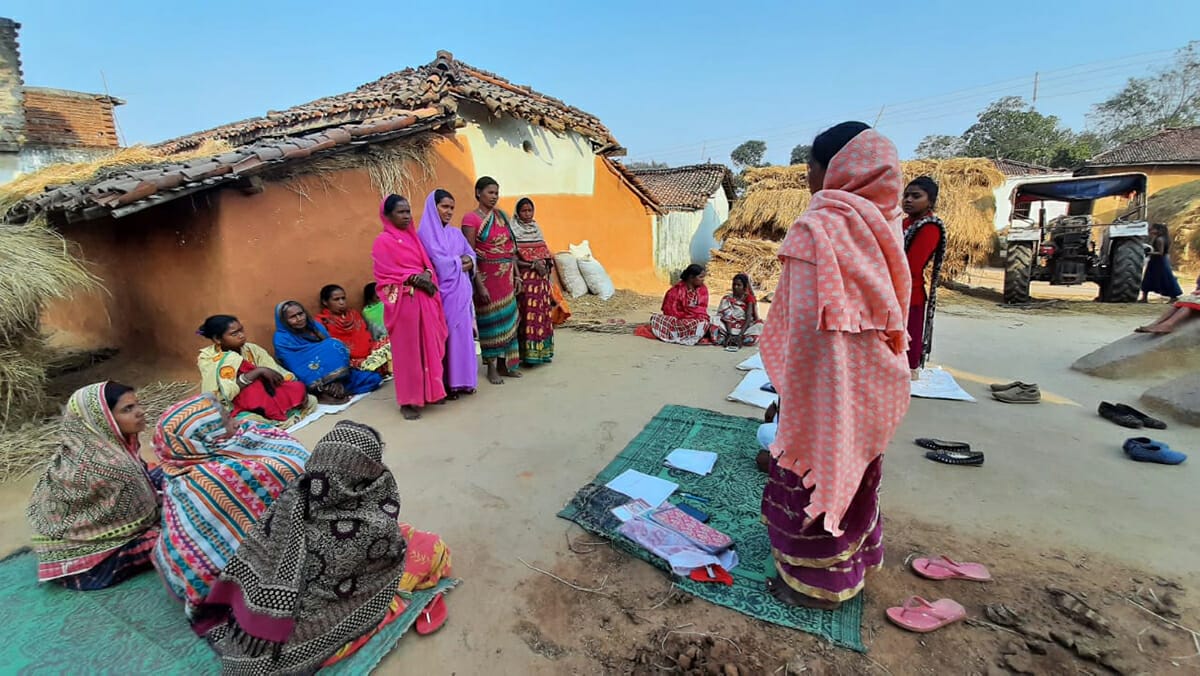News > Blog
Breaking the Silence on Menstrual Hygiene in India
Published 06/01/2021 by Global Communities

Menstruation is critical for the continuation of life on earth. Despite this being a natural process, it causes a severe hindrance in the growth and development of women and girls in our patriarchal society. Young girls are often told to discuss their period-related issues only with older girls or women, forming the impression that menstruation is exclusively a female issue and matter of shame; hence, one should only whisper about it and never discuss it with men.
PCI India recently explored different aspects of women and girls’ lives, including their menstrual health practices, in Jharkhand, India. Through these interactions, we learned that the majority of mothers in this area do not undertake any conversation on menstruation with their adolescent daughters. Girls learn it in their own way, primarily receiving information from their peers and other unreliable sources. There is a lack of opportunity to discuss menstruation-related issues at home, and the adolescent girls continue to carry the myths, taboos, feelings of disgrace and restrictions around periods. This silence around menstruation and tendency to continue traditional practices without questioning them deep-roots the issue.
Our survey in the same area of Jharkhand indicates that 32 percent of girls never attend school when they are menstruating due to shame, infrastructural issues in schools and overall discomfort. This acts as a hindrance to their self-esteem, performance in class and career aspirations. We also found that 88 percent of women believe that they discharge dirty blood during menstruation which cleanses the body, and 80 percent of women think a girl should not attend religious functions while menstruating as they are considered impure during that cycle of the month.
The question lies: How long will it take to get rid of the stigma and disgrace attached to menstruation? When will we all question openly why a natural process is a matter of silence and shame?
In partnership with Jharkhand State Livelihood Promotion Society (JSLPS), PCI India is helping women in collectives to break the silence around menstruation and bring a shift in norms. Women and girls need to work together for their right to health. PCI’s Umang project, implemented in collaboration with the International Center for Research on Women, works with members of women’s collectives to improve communication with their daughters and other family members to support normative shifts toward the empowerment of women and girls. Menstruation, a sign of fertility and good health, must be normalized and celebrated.
Recommendations:
- Community-based communication that menstruation is natural. It is essential to attend to women and girls’ menstrual hygiene management needs.
- Enable mothers to lead the conversation with their daughters on menstruation and remove the myths and stigma attached to it.
- Encourage girls not to miss school, schedules of learning, or employment during periods.
- Create awareness around menstrual irregularities during adolescence to avoid any reproductive health complications in adult life.
This post was written by Ankita Kashish, Umang Program Manager, PCI India and Sushmita Mukherjee, Director, Gender and Adolescent Girls, PCI India. It first appeared on PCI India’s blog in recognition of Menstrual Hygiene Day on May 28, 2021.





